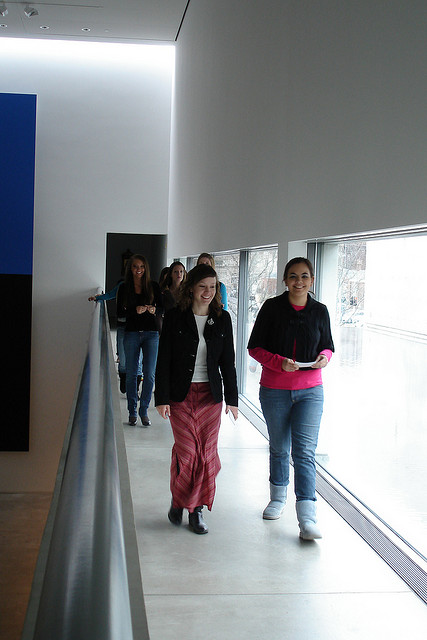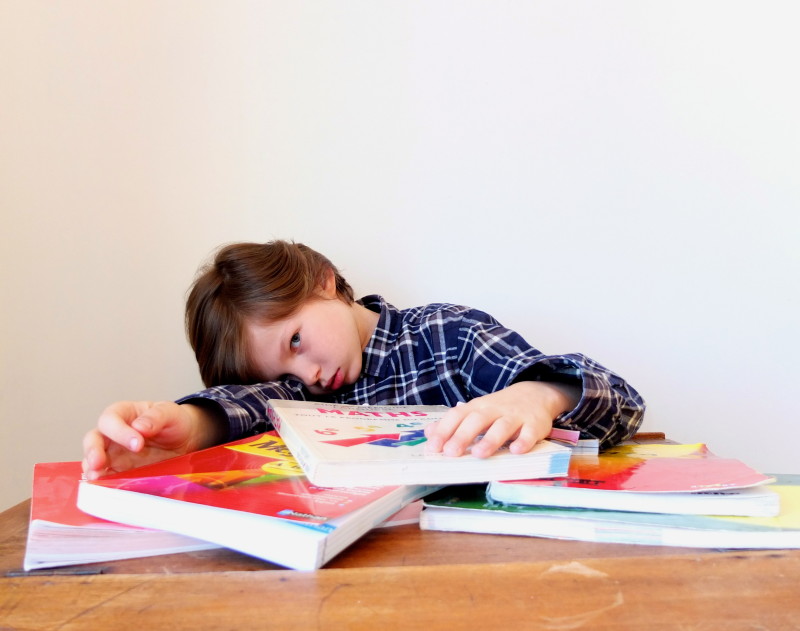Liberté, égalité, anxiété: why are the French so pessimistic?
It’s an unyielding mystery: how is it that France, known all over the world for its joie de vivre, can be plagued by so much doom and gloom? From a lack of confidence in the future and a rejection of politicians, to skepticism about the educational system and the welfare state, this gloominess pervades all aspects of French life.
Are the French bons vivants also incorrigible grouches? Behind their incessant diatribes is an underlying misery, the roots of which are linked to French identity and culture. Or, at the very least, that’s what many international surveys are suggesting.
Cliquez ici pour le lire en français.
A French paradox

Logically, migrants and expats living in l’Hexagone should also be affected by this strange disease. However, they are not. According to economist Claudia Senik in her book ‘L’Economie du bonheur’, they are just as happy in France as they are elsewhere. Similarly, the Francophones in Canada, Switzerland and Belgium don’t necessarily experience this same French pessimism.
“French unhappiness isn’t linked with objective circumstances, but rather with the values, beliefs and perception of reality that the French have,” says Senik. “It is the result of a cultural phenomenon relating to representations or manners of being that have been handed down from generation to generation, even if their causes have disappeared.”
Senik notes that despite having free access to healthcare, education and high quality facilities, the French are suffering from a deep-seated melancholy. If it isn’t linked to French living standards – which are envied in most other countries – then where exactly does this incapacity to be happy, reassured and optimistic come from?
An educational system that is still too strict
According to a 2009 study conducted by the Organisation de Coopération et de développment économiques (OCDE) on the wellbeing of children in its 34 member countries, France ranks 23rd in educational wellbeing and 22nd in quality of school life. It seems therefore that the French malaise takes root, amongst other factors, early on at school.
The ultra-competitive French school system is a two-tier system. It relies on discriminatory assessment favouring good grades and encouraging strong students while abandoning its weakest.
Peter Gumbel, author of ‘French Vertigo’, presents a quite alarming overview of the French school system in his book, ‘They Shoot School Kids, Don’t They?’. He denounces “a culture that is unforgiving, demeaning and sometimes humiliating. A culture that has made a cult out of high-pressure evaluation and yet gives only short shrift to the notion of individual motivation”.
The French system is far from the Anglo-Saxon and Scandinavian models, which are based on encouragement rather than punishment. For example, an American educator, whether he or she is a teacher or a parent, would constantly encourage the child in sports or studies, even if the level of the child’s skill was not exceptional.
French unhappiness isn’t linked with objective circumstances, but rather with the values, beliefs and perception of reality that the French have
Participation and group work play an important role very early on in schooling. This way, the child develops self-confidence, which will serve to be a very valuable asset throughout his or her life.
Worrying, on the other hand, is what separates French schoolchildren from others. If we were to go by international surveys, we could describe them as particularly anxious. According to an OCDE study, French students are amongst the most stressed when it comes to Maths, for example. And from there on, it’s not hard to see the stressed schoolchild of the past in the pessimistic adult of the present.
A more optimistic youth?
 Luckily, there have been more than encouraging signs in France that prove otherwise, – especially amongst Generation Y.
Luckily, there have been more than encouraging signs in France that prove otherwise, – especially amongst Generation Y.
According to French philosopher Michel Serres, having only known a networked world and growing up in a digitalised era, Gen-Y’s “way of being – connected, horizontal and creative at the same time – innervates everything in our society”.
Serres paints a portrait of the young generation in ‘Thumbelina: The Culture and Technology of Millennials’. Many of them have gone overseas during their studies, for internships or even for their first job. For them, it’s an opportunity to encounter another reality that offers life and work prospects that are sometimes more engaging than the restrictive prospects they’ve been brought up with.
However, this trend isn’t limited to French borders. Growing up with Internet and entrepreneurial success stories like that of Facebook CEO, Mark Zuckerberg, Gen-Y as a whole is in the midst of witnessing the fall of old economic, political, social and educational models.
The boldness, creativity and pragmatism of this new generation is perhaps already blowing new winds of optimism over the country.
What do you make of these claims – are the French too pessimistic? Do you agree or disagree with the data? Add your voice to the conversation below!
Image credits:
1 & 3 © Florence Harang.
2. “Bercy, Paris 01” by Mortimer62 – Flickr. Licensed under CC BY-SA 2.0 via Wikimedia Commons.
4. French Program by The Pulitzer Foundation for the Arts, via Flickr.









I think that being realistic can sometimes be taken as someone being negative, which is what I think may have happened here. I definitely agree that taking a very competitive approach from a young age in school makes for a hard and rigid society but i don’t think that means they’re pessimistic. Everyone has their days and I’m sure they have have their pessimistic days like everyone else. However perhaps they’re just a bit misunderstood?
Loved the article! Very thought provoking!
Christina I think you’ve hit the nail on the head here, they’re a bit misunderstood. Love the article Florence! They hold themselves to high standards which is great, but can lead to a lot of stress, starting with the school system.
After moving to Paris nearly three years ago I’ve found the pessimism nearly unbearable at times. They have a lack of faith in just about anything and often aren’t willing to see possibilities in new solutions. I have a daughter now and am hoping to move away from France before she becomes immersed in their negativity!
That’s horrible to hear! Being surrounded by negativity is never good, so I hope you find what you’re looking for, for you and your daughter 🙂